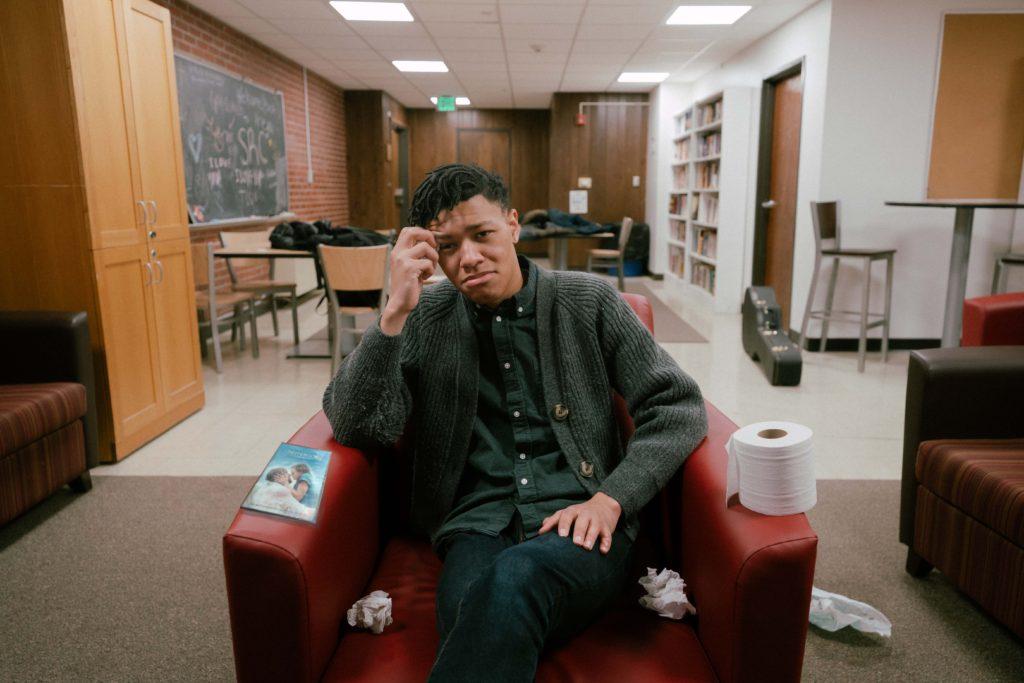By Marcus Cassidy
cassidym@grinnell.edu
Love is in the air… and it’s suffocating. As couples celebrate anniversaries, order thoughtful gifts, craft poetic cards, and make dinner reservations, it takes everything in me to not slam my face into a snowbank and scream.
Although I’ll always love Valentine’s Day—the romcoms, the dates, the dinners, even the Hallmark cards—my bitterly single self has been more recently feeling conflicted. My advice: give up on single angst and stop looking for love. That societal pressure to be coupled up that comes with Valentine’s Day is a really unhealthy result from decades of running the holiday into the ground.
Valentine’s Day did not come to be celebrated as a day of “romance” until several decades ago. Even though playful cards were exchanged for centuries in Europe, the United States succeeded in completely commercializing love by the 19th century. Specifically, Hallmark really leaned into the cultural standard for heteronormative love, laying the foundation for a culture obsessed with romance.
Valentine’s Day as a celebration of “romance” is a fairly recent phenomenon. Playful cards were exchanged for centuries in Europe without the accompanying pressures we experience today. Only in the last century did our own American culture, thanks in large part to companies such as Hallmark, completely commercialize heteronormative love on an annual basis.
This year, February 14th marks the first Valentine’s Day that most Grinnellians will experience with each other in person. While couples abound, a lot of us are understandably lonely and frustrated. Why? College is a stage of life in which social relationships mean the most to us. We feel like incomplete halves who are desperately seeking human connection. Combined with how much we idealize romantic connection, the most obvious product of being single this time of year is a general discomfort being alone with yourself.
Under all this pressure, Valentine’s Day loses its luster as we mature. It’s easy to adore a holiday where your classmates are socially obligated to give you candy; it’s much less fun to spend the day ignoring the existential loneliness most of us now associate with the holiday. Do I sound bitter? As a natural romantic, I feel obligated to be, especially considering that I was promised a sixty percent chance to find my soulmate.
Nevertheless I remain optimistic, but we need to realize that “love” is more than just commercialized romance. Looking for love takes more than parties, clubs, and Tinder Gold. The search begins with dating yourself. The search begins with dating yourself—ignore the narcissistic connotation and know that it’s worth the effort. Take yourself to the movies, wear a sexy outfit to your 8 a.m. class, cook a nice dinner, practice self-care, and just enjoy being yourself.
Dating yourself doesn’t necessarily mean a commitment to hermithoood. You can also experience love in your friendships. Take your best friend on a date to one of the three restaurants in town. Go for an uncomfortably cold walk by the golf courses. Make your own love in whatever way you interpret the phrase.
In the end, I’m not really asking us to stop putting ourselves out there, despite experiencing diminishing returns of late. I’m just recommending that we channel all of our frustration into something useful. Love attracts love after all. We don’t need Valentine’s Day to remind us of that.




























































